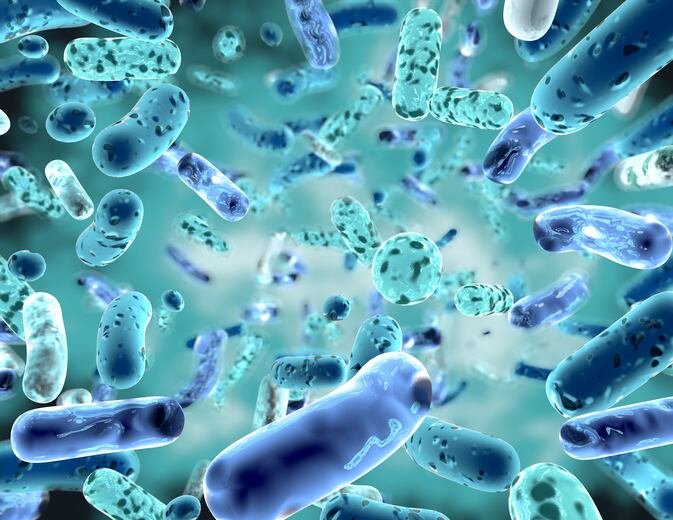Writing in Nature Reviews, postbiotics is now defined as, ‘a preparation of inanimate microorganisms and/or their components that confers a health benefit on the host.’
Examples of a postbiotic can therefore be whole microbial cells or components of the cells, that have been deliberately inactivated.
“With this definition of postbiotics, we wanted to acknowledge that different live microorganisms respond to different methods of inactivation," says Professor Seppo Salminen, lead author of the publication.
"Furthermore, we used the word 'inanimate' in favour of words such as 'killed' or 'inert' because the latter could suggest the products had no biological activity," adds the professor, who is based at the University of Turku in Finland.
United definition
ISAPP’s postbiotic definition is the latest in a series of international consensus definitions by the organisation that has included probiotics, prebiotics, synbiotics and fermented foods.
These efforts to provide definitive interpretations are a response by ISAPP to offer clarity to the scientific community, which had not yet united around a definition, nor had it precisely delineated what falls into each category.
In the case of postbiotics, the term’s emergence as an important microorganism-derived tool to promote health was made more urgent by its close links to the family of terms.
“The possibility that non-viable microorganisms, their components and their end-products play a part in the health benefits of such products is the rationale underlying the need for accurate terminology,” the statement reads.
“We consider that a common understanding of the emerging concept of postbiotics, including a consensus definition would benefit all stakeholders and facilitate developments of this field.
“Herein, we address several aspects pertaining to postbiotics, including processing factors important in their creation, proper characterisation, mechanistic rationale on how they work to improve both intestinal and systemic health, safety and current regulatory frameworks.”
European Union rules
Currently in the European Union, there are no specific regulation covering probiotics, prebiotics, synbiotics or postbiotics.
The panel acknowledges that as their definition requires a health benefit, they expect the use of any of these terms on a food or food supplement would require health claim approval.
In the region, assessment of postbiotic safety falls under the responsibility of the European Food Safety Authority (EFSA), which develops updated lists of microorganisms that meet criteria for presumptive safety for use in foods.
This process, called Qualitative Presumption of Safety (QPS), would apply to live microorganisms (including bacteria and yeast) used as progenitor microorganisms for postbiotics.
Microorganisms not found on the list require a systematic novel food application and approval in Europe before they can be used for postbiotic development for foods or feeds.
Clarification methods
The publication details how the definition of postbiotic was finalised with an expert panel of scientists taking part in discussions in late 2019.
The panel comprised of experts in probiotics and postbiotics, adult and paediatric gastroenterology, paediatrics, metabolomics, regulatory affairs, microbiology, functional genomics, cellular physiology of probiotics and host interactions and/or immunology.
Before the meeting, panellists agreed on questions and during the meeting, panellists presented perspectives and evidence, debated the proposed questions and reaching consensus.
“This was a challenging definition to settle,” says Mary Ellen Sanders, ISAPP's Executive Science Officer and one of the panel members.
“There are some who think that any purified component from microbial growth should be considered to be a postbiotic, but the panel clearly felt that purified, microbe-derived substances, for example, butyrate or any antibiotic, should just be called by their chemical names.
“We are confident we captured the essential elements of the postbiotic concept, allowing for many innovative products in this category in the years ahead."
‘Postbiotic advantages’
Stratum Nutrition, a US-based supplier of ingredients that includes the postbiotic ingredient, LBiome says, “Postbiotics do appear to be the trend in the Biotics industry,”
“Whether a postbiotic ends up being defined as the beneficial components of microbial fermentation, the heat-treated microbial cells themselves, or a combination of the two, they do have some distinct manufacturing and marketing advantages over probiotics.
“Since they are not live microbes, shelf stability and survival through the gut can be much more predictable.”
"The definition will be a touchstone for scientists, both in academia and industry, as they work to develop products that benefit host health in new ways,” adds Sanders.
“We hope this clarified definition will be embraced by all stakeholders, so that when the term 'postbiotics' is used on a product, consumers will know what to expect."
Source: Nature Reviews Gastroenterology & Hepatology
Published online: doi.org/10.1038/s41575-021-00440-6
“The International Scientific Association of Probiotics and Prebiotics (ISAPP) consensus statement on the definition and scope of postbiotics.”
Authors: Seppo Salminen et al.


